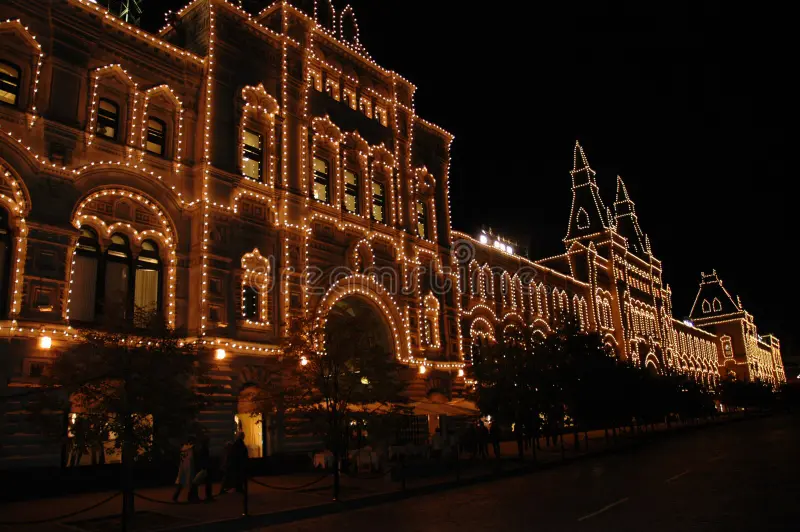Sanctions have had a considerable political and financial impact on Russia following its invasion of Ukraine in 2022. While Western nations – such as the United States, the European Union along with other allies – imposed a round of severe sanctions on major areas of Russia’s economy, the nation has experienced growing political and economic pressures. These sanctions – which have undermined Russia’s ability to fund its war effort and cut it off out of the world economy – have had mixed effects on Russia’s internal stability, political scene and financial systems. Although sanctions have damaged Russia’s economy, Russia’s government under President Vladimir Putin has been resilient despite long term consequences.
Probably the most immediate and noticeable consequence of the sanctions is the harm to Russian economy. Sanctions against Russian banks, financial institutions and businesses – especially for energy, technology and defense – have cut Russia off from important global markets. Some Russian banks were kicked off SWIFT international transaction system, stopping them from transacting worldwide. Restriction on technology exports have prevented Russia from accessing crucial ingredients like semiconductors required by its electronics, automotive, and defense industries.
Sanctions have hammered Russia’s profitable energy sector, which provides a big share of income on the nation. The EU, which has long been Russia’s largest gas and oil buyers, has attempted to curtail its dependency on Russian power by banning and establishing prices for Russian crude. Russia has attempted to redirect its gas and oil exports to markets including India and China but the loss of its European clients has left it with revenue shortfalls and also weakening its occupation.
The ruble has also endured inflation and weakened under the strain of these sanctions. The ruble plunged in value throughout the early phase of the sanctions, placing intensive inflationary pressures on the Russian economy. Despite tight capital controls to stabilize the ruble, Russians have witnessed sharp price hikes on products, particularly imported items. Shortages of several goods, aggravated by sanctions on technology and industrial inputs, have strained the Russian economy.
Russia has remained resilient despite these economic obstacles. The government has attempted to dampen a few of the immediate effects by policy, directing trade to non-Western destinations including China, Turkey and India. Additionally, the Russian central bank kept everything going – raising interest rates and steadying the ruble by purchasing foreign currency – staying away from a total financial collapse. Russia’s dependency on oil and gas exports has supplied a steady revenue stream although at a lower level which enables it to weather the sanctions better than several analysts anticipated.
Politically, the sanctions have mixed Russia’s stability. On the one hand they’ve strained Russia’s interactions with the West and driven the nation even further into isolation. As a result, President Vladimir Putin’s administration has used the sanctions to win domestic support by presenting them as proof of Western hostility and because nationalist stories. State media have framed the sanctions as part of a bigger Western plot to weaken Russia and the messages has helped mobilize public support for the government amongst sections of the public.
However the political ramifications of sanctions are less sure. Even though the immediate impact hasn’t triggered widespread public unrest, prolonged economic hardship may boost dissatisfaction with the government in case living standards get worse. The sanctions have particularly hard hit Russia’s middle class and the financial fallout might go on to irritate the business elite and urbanized areas. Already reports surfaced of capital flight involving rich Russians shifting assets abroad to stay away from sanctions. With time, there might be inner conflict inside Russia’s economic and political elite, with rival factions battling for waning power and resources.
Russia additionally increases its dependency on non-Western nations like India and China that has political implications. These countries have supplied several economic lifelines but are likely to exploit Russia’s weakening position to strike far better trade deals – often at Russia’s expense. This might further restrict Russia’s economic independence, making Russia economically and politically a lot more reliant on powerful nations like China.
Lastly, the sanctions against Russia have impacted Russia’s political and economic stability. They’ve ruined the Russian economy – inflation, a weakened currency and restricted access to worldwide markets. While Russia has redirected commerce and stabilized its monetary systems, the long term effects will likely be far reaching. Politically, the sanctions have bolstered nationalist sentiment and reinforced Putin’s short term position but continued financial strain could ultimately produce public dissatisfaction and divisions within the Russian elite. The total effect of these sanctions on Russia’s potential stability remains to be seen as the geopolitical landscape changes internationally.

